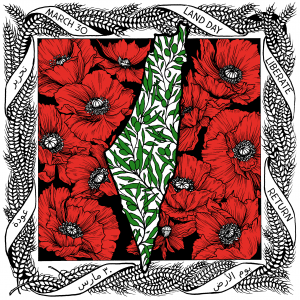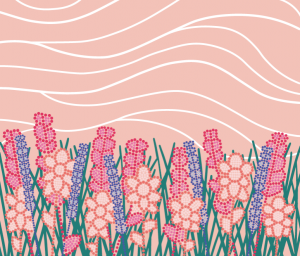By Adele Perry and Pauline Tennent
Since 2008, Manitoba has celebrated Louis Riel Day with a statutory holiday. Other provinces call their February holiday Family Day, or Heritage Day. Manitoba’s day recognizes Louis Riel, Métis leader and elected president of the Legislative Assembly of Assiniboia who was put to death for the charge of Treason in 1885. Louis Riel Day is a celebration of local history, and an important reminder that this province was born in struggle with colonial governments, in this case Canada’s. These are histories worth recalling as we bear witness to the ongoing violence, displacement, and resistance in Palestine.

These are difficult circumstances that are rooted in both long histories and recent events. It has been four months since armed Palestinian groups launched rockets toward Israel, killing more than 1,200 persons, and abducting around 240 people. The state of Israel followed with a military attack by land, air, and sea. The results have been devastating, what UN Secretary General Antonio Guterres describes as “appalling human suffering, physical destruction and collective trauma across Israel and the Occupied Palestinian Territory.” UN Women reports that as of 12 February 2024, that at least 28,340 Palestinians had been killed in Gaza, 70 percent of them women and children. This staggering loss has come alongside damage to basic human rights and security, including forced displacement on a massive scale. Institutions of cultural memory, archives, learning, and research including all or parts of Gaza’s 12 universities have been destroyed.
In January 2023, South Africa argued before the International Court of Justice (ICJ) that Israel’s actions amounted to “genocidal conduct” and breached the 1948 Genocide Convention. It was a harrowing and careful case, rooted in international law and backed evidence. The ICJ responded with provisional measures against Israel, demanding that they prevent and punish incitements to genocide, allow humanitarian aid, ensure that evidence of alleged crimes be preserved, and report back within a month.
Canada’s response to this ruling, and to ongoing questions about its support for the Israeli government, revealed the limits of Canada’s supposed commitment to international law. It also reflected Canada’s relationship to discussions of genocide, settler colonialism, and Indigenous sovereignty within the Canadian context.1 Legal scholars Heidi Matthews, Faisal Bhabha, and Mohammad Fadel argue that Canada’s response to the ICJ ruling response represented a “deliberate indifference to atrocity.” In the months since the ICJ’s ruling, little has changed. Israel has targeted medical facilities, impeded food aid, used seawater to flood Gaza, and expanded its operations toward Rafah. At the ICJ, more than 52 states – most of them from the global majority – are seeking a nonbinding legal opinion against Israel’s occupation of the West Bank, Jerusalem, and Gaza since 1967.

Across the world, and with particular visibility in the global south, people have advocated for a ceasefire and expressed solidarity with Palestine and Palestinian liberation movements. Indigenous intellectuals and artists have written that it is “heartbreaking and unsurprising to see the colonial powers in Canada, the United States, Australia, New Zealand and Europe line up behind this genocide.” More than 200 legal scholars and practitioners have demanded that Canada support a ceasefire and effectively support the “vital international humanitarian and human rights legal standards that Canada regularly champions around the world.”
Scholars, activists, and ordinary people with opinions have had to navigate a chilled environment that has too often equated critiques of the current Israeli state with antisemitism and, as Ethel Tungohan’s podcast explains, uses the language of equity, diversity, and inclusion to silence those who critique Israel, or even call for peace. These dynamics have also played out close to home at the University of Manitoba, amid rising anti-Palestinian racism, Islamophobia and antisemitism. The venerable student-run newspaper, The Manitoban, has emerged as a crucial voice for careful and engaged conversation. Jonah Corne, a professor in the department of English, Film, and Theatre at the University of Manitoba explains that we have had to navigate “increased fears about what one can and can’t say, particularly when it comes to voicing criticisms of Israel,” fears that were made concrete with the suspension of nursing student Arij Al Khafagi in the fall of 2023. The suspension was overturned by a discipline committee in February 2024, and as historian and advocate Ben Baader explains, it reminds us of the need for “free political contestation in a dramatic situation of war and destruction.” This includes the kind of critical engagement with the mobilization of Indigenous and Black feminist language offered by the Manitoba chapter of Faculty 4 Palestine, including Serenity Joo and Dana Medoro.
On 28 February at 3pm CST, the CHRR will host a webinar discussing solidarities and connections with Palestine. Our panel includes Winnipeg Centre MP Leah Gazan; lawyer and human rights advocate Alex Neve; long-time Winnipeg activist Harold Shuster; scholar and community organizer Youcef Soufi; and York University professor and extraordinaire Ethel Tungohan. Each of these people bring different knowledge to the table, and we look forward to an important conversation about global events that are connected to histories of colonialism, dispossession, and resurgence within our own territories, and that demand our attention and action.
- This is a point made by Heidi Matthews and Alonso Gurmendi, in “HMOD Episode 12 – Hague Wars: The Global South Strikes Back,” https://soundcloud.com/hmodpod/hmod-ep12-haguewars?utm_source=clipboard&utm_medium=text&utm_campaign=social_sharing.

